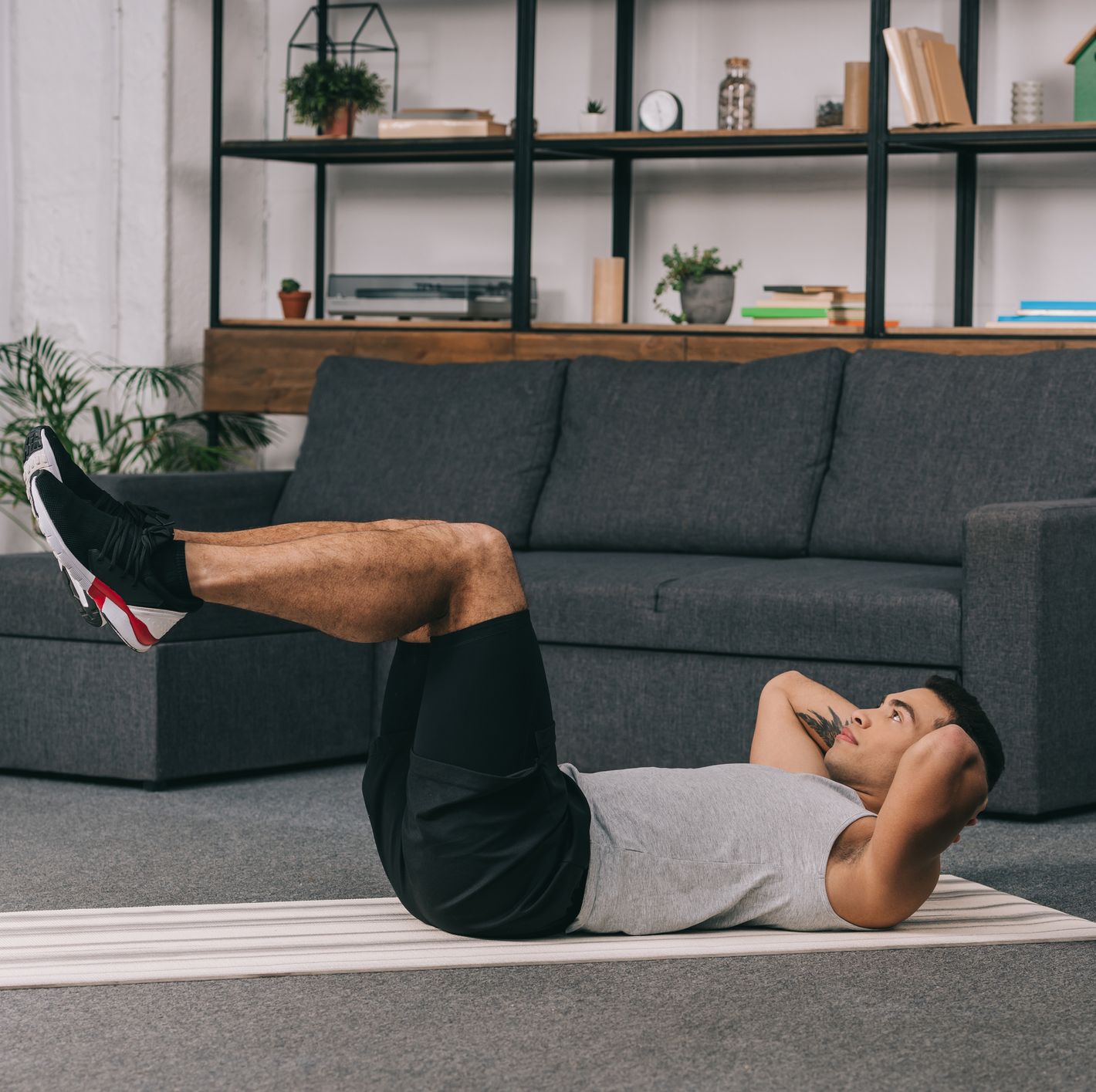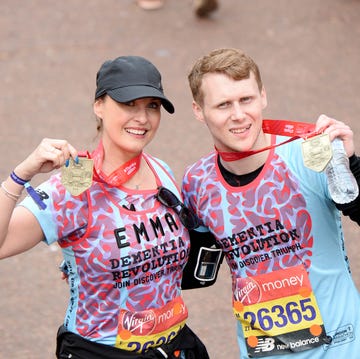- According to a recent University of Alberta presentation, taking five-minute exercise breaks every few hours can maintain your physical—and mental—health.
- This can come in handy for those working from home and struggling to get some exercise into the mix during quarantine—particularly if you have limited time to run outside or just aren’t feeling as motivated right now.
For those working from home and struggling to find a new exercise routine, here’s some good news. It only takes about five minutes of moderate exercise every few hours to maintain your physical health, according to three University of Alberta physiotherapists who hosted a livestream presentation on April 30 about maintaining fitness from home.
Even better—taking those movement breaks can supply a much-needed mental health boost as well, which is increasingly crucial as the coronavirus pandemic continues.
The presenters noted that prolonged sitting is linked with increased risk of serious conditions like cardiovascular disease, obesity, and some cancers. It can also lead to back pain, headaches, and neck pain, particularly if your home office setup is less than ideal when it comes to ergonomics.
Fortunately, five-minute sweat breaks with exercises like lunges, push-ups, planks, and standing 'high knees' can improve blood flow to your brain, which can help you return to your tasks with greater focus. The presenters also recommended the YMCA three-minute step test—stepping on and off a step or box at a set speed for three minutes—to set a baseline fitness level and keep track of progress.
The recent presentation falls in line with previous research and scientific commentary that has highlighted the benefits of short bursts of activity, even for just a few minutes. Authors of an editorial last year in the British Journal of Sports Medicine suggest that these “workout snacks” have plenty of nutritious movement.
Dubbed high-intensity incidental physical activity (HIIPA), these sporadic bursts of exercise could have major advantages for those who are less active otherwise, lead author Emmanuel Stamatakis, Ph.D., associate professor in the School of Public Health at the University of Sydney, told Bicycling.
Benefits will vary by age and fitness level, and if you’re used to high-intensity runs and races, improvements in your cardiovascular health will be lower than someone who is normally sedentary, he said.
However, he noted that studies in young adults show as little as three sessions of stair climbing per day on three days per week have measurable increases of five percent in fitness over six weeks—that’s just one minute total of HIIPA per day.
Bumping that up to five minutes, spaced throughout the day, could have a surprisingly large effect, Stamatakis suggested.
'The more movement you get, the more benefits you see,' he said. 'That’s especially true if you’re breaking up your sitting with these "movement snacks" and being consistent in adding those to every day.'













